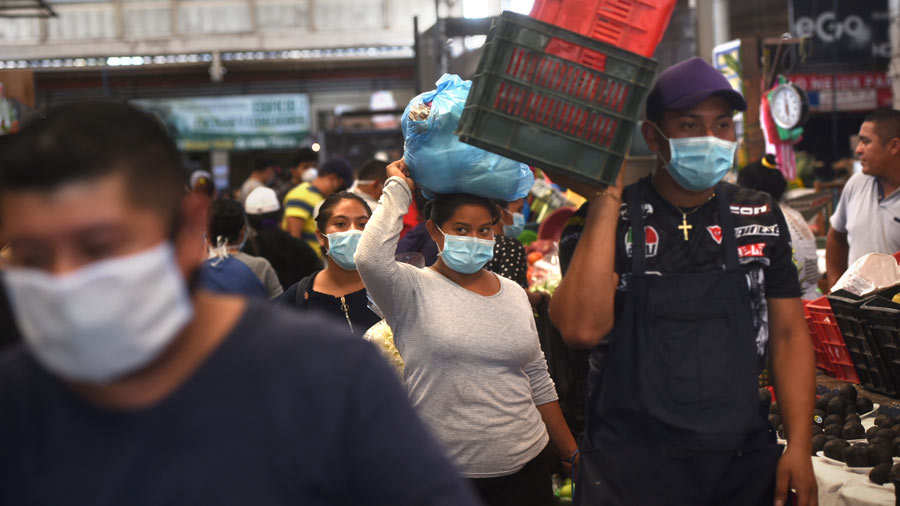
The BCR reported a contraction of -10.2% of Gross Domestic Product in the third quarter of the year, adding up to six consecutive months of negative growth.
El Salvador’s economy is officially in recession after having amused six consecutive months of negative growth by recording a contraction of -10.2% of gross domestic product (GDP) in the third quarter of the year, according to data of the Central Reserve Bank (BCR).
In the first quarter of 2020, GDP grew by 0.8%, but in the second it fell by -19.22% and the discouraging outlook remained at -10.2% for the next three months between July and September.
The recession, which is colloquially known as the “lean cow” period, has been the product of the closure of thousands of businesses that generated more than 85,000 layoffs, reduced consumption and in turn depressed investment as part of a long confinement that the Government applied since March, due to the COVID-19 pandemic.
However, in its report, the BCR indicated that the contraction of -10.2% shows “an unprecedented recovery in the 2005-2020 series”, as it considers this to be lower than the second. quarter.
Experts had warned about this economic situation since the end of September, but at that time, the BCR had not yet published official data.
READ MORE: El Salvador will fall more than 8% in its economy by 2020
At that time, the former head of this institution and president of the Foundation for the Development of Central America (FUDECEN), Oscar Cabrera, estimated that between April and May economic production fell 13.7% and for the third quarter from July to September it was projected that the fall would be -9.4%, although the data make it official that in the last period there was a contraction of -10.2%.
Although the economy began to open gradually since July, companies are not recovering. The El Salvador Chamber of Commerce and Industry confirmed last September that sales remained at 50% and there are still businesses that have not been able to open or re-hire staff.
“The economy has not stopped falling,” said Waldo Jimenez, economic manager of the National Association of Private Enterprises (ANEP).
And he states that this will be maintained for the remainder of 2020 as a coronavirus vaccine has not yet been confirmed and Salvadorans will have to learn to live with it.
Cabrera noted that in 2009, when a financial and economic crisis arose, the country took four years to regain the level of jobs it had in 2008, but now, with this recession, it is likely that El Salvador will take until 10 years to recover.
“Consumption and investment spending recovered in four years. It may now take a decade for the pandemic to continue, as all countries in the world will be reducing their trade channels,” he explained.
The Economic and Fiscal Situation 2020 report presented by the National Foundation for Development (Fon) confirmed that El Salvador still does not show an economic recovery from a year-on-year perspective; according to the Economic Activity Volume Index (IVAE), in September there was a drop in economic dynamism of 8.1% compared to the same month of the previous year. With regard to Gross Domestic Product (GDP) for the second quarter, it shows a contraction of 19.2%.
The Fund detailed that the effects of the pandemic have spread in all economic sectors, being the most affected trade, construction, professional services and industry, showing falls in economic activity of 19.84%, 19.48%, 11.24% and 9.63%, respectively.
YOU MAY BE INTERESTED IN: 72,000 jobs are not yet recovered according to ANEP